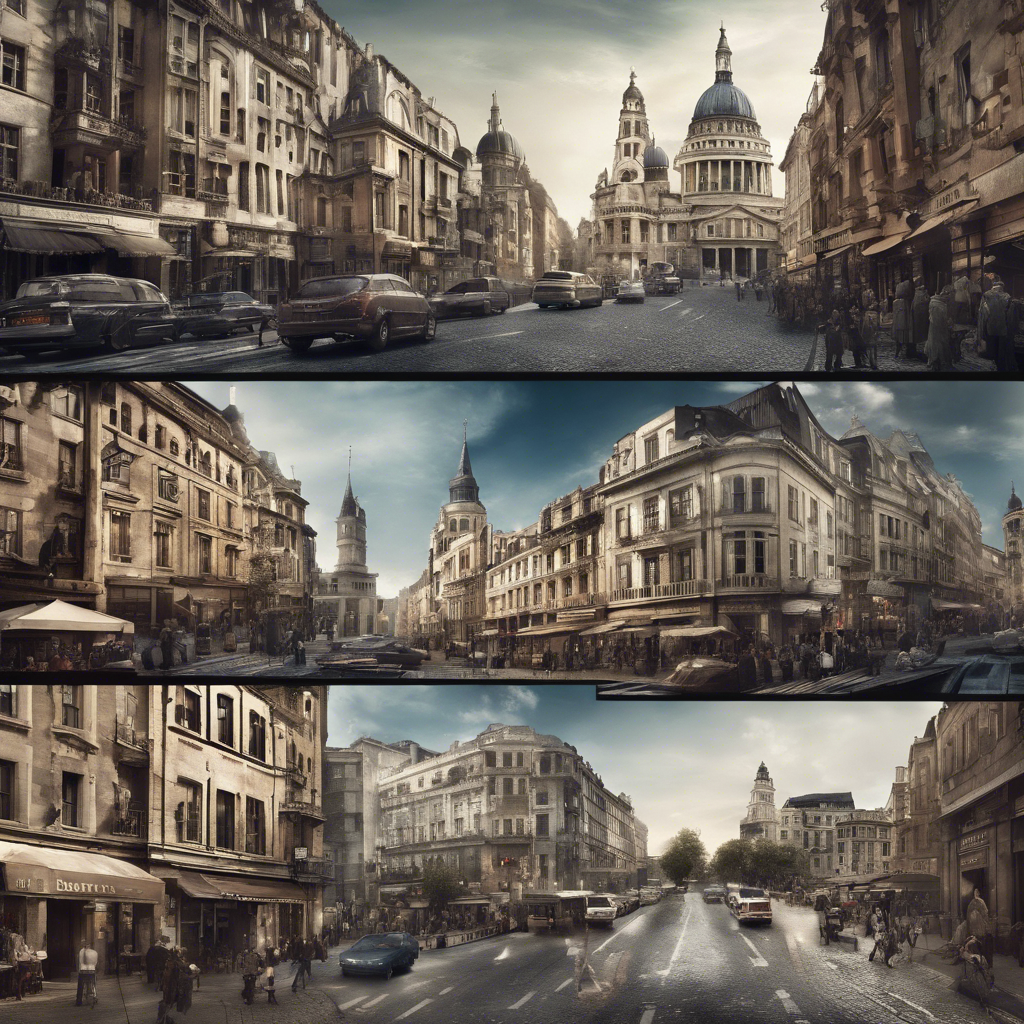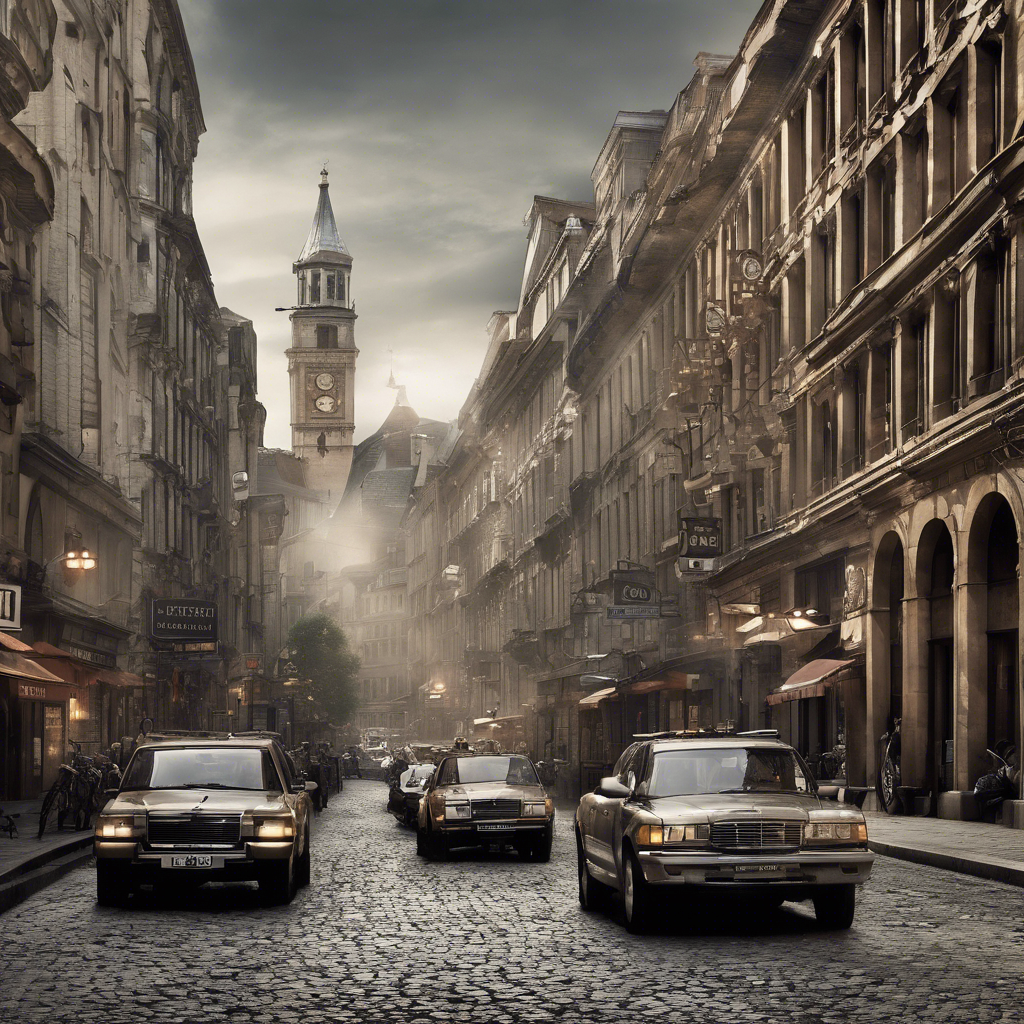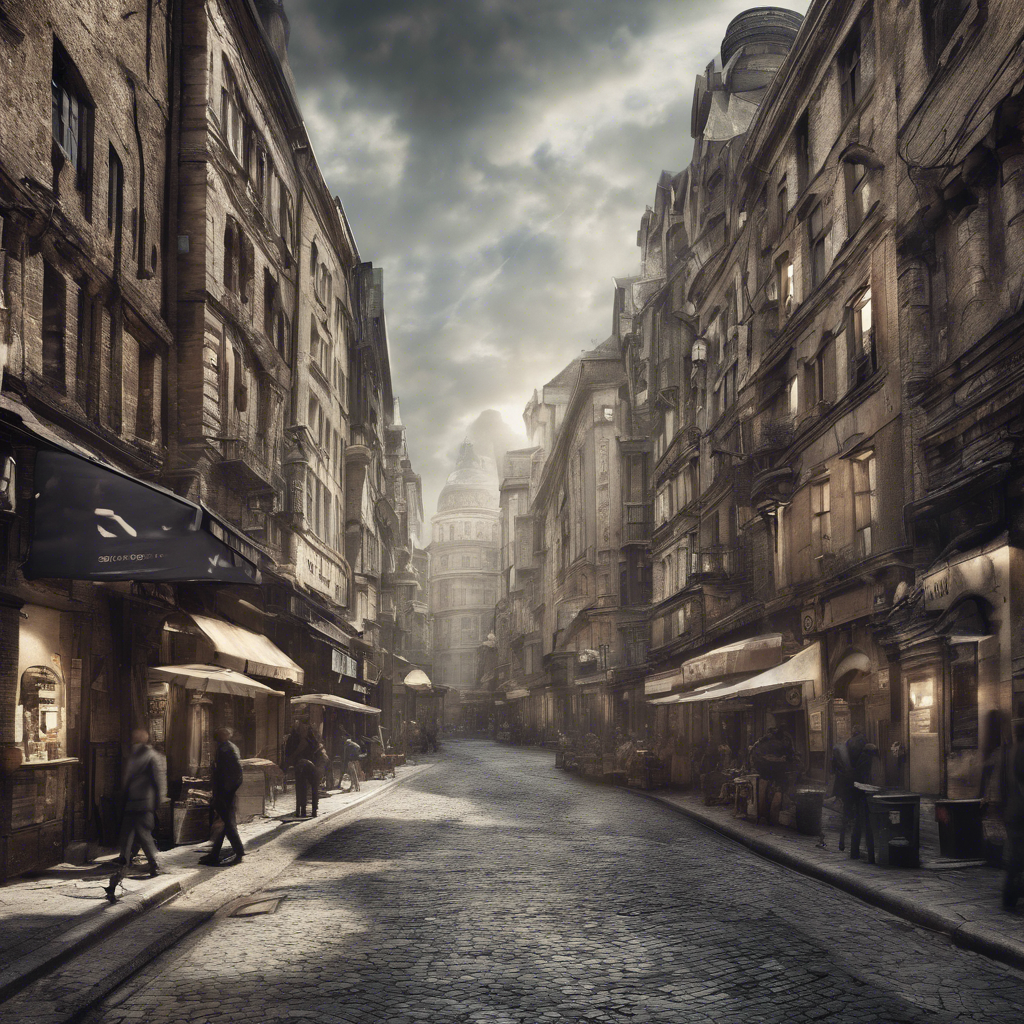As we journey through the annals of time, it becomes evident that certain cities have stood out as beacons of influence, shaping the course of history and leaving an indelible mark on the world. Join us as we embark on a captivating exploration of the most influential cities in world history.

1. Rome, Italy

Nestled amidst the picturesque hills of Italy, Rome emerges as a captivating city that exudes a rich tapestry of history and culture. As the epicenter of the once-mighty Roman Empire, Rome showcases an unparalleled blend of architectural wonders and historical landmarks that narrate tales of ancient glory. The Colosseum, an iconic symbol of Roman engineering prowess, stands as a colossal amphitheater where the echoes of gladiator battles and roaring crowds still resonate through time. The Pantheon, with its magnificent dome and intricate design, serves as a testament to Roman architectural innovation and artistic brilliance.
Beyond its physical grandeur, Rome was the political nucleus of an empire that governed vast territories with precision and authority. The Roman Senate, a political institution that shaped the destiny of nations, deliberated within the walls of this ancient city, crafting laws and policies that would influence generations to come. The legacy of Roman governance, with its emphasis on law and order, has left an indelible mark on modern political systems and institutions worldwide.
Moreover, Rome's engineering marvels, such as aqueducts and roads, exemplify the ingenuity and foresight of a civilization that laid the foundations for modern infrastructure and urban planning. The intricate network of aqueducts, designed to supply water to the city, showcases the Romans' advanced engineering skills and their commitment to enhancing the quality of life for their citizens.
In essence, Rome stands not only as a city of ancient ruins and monuments but also as a living testament to the enduring legacy of a civilization that shaped the course of history. Its influence on art, architecture, law, and governance continues to resonate in contemporary society, serving as a reminder of the enduring impact of the Roman Empire on the world.
2. Athens, Greece

Located in the region of Attica, Athens stands as a timeless beacon of human achievement and progress. Its rich history dates back thousands of years, making it one of the oldest cities in the world. The legacy of Athens as the cradle of Western civilization is deeply rooted in its contributions to philosophy, politics, and the arts.
During the Golden Age of Greece, Athens experienced a period of unprecedented cultural growth and innovation. The city-state became a hub for intellectual discourse, attracting scholars, artists, and philosophers from far and wide. The philosophical teachings of luminaries such as Socrates, Plato, and Aristotle not only influenced their contemporaries but also laid the foundation for modern philosophical thought.
Athens' commitment to democracy set a precedent for governance that continues to shape political systems around the globe. The concept of citizen participation in decision-making processes, as exemplified by the Athenian democracy, remains a fundamental principle of modern democracies.
One of the most iconic landmarks of Athens, the Acropolis, is a testament to the city's architectural prowess and cultural significance. The Parthenon, a temple dedicated to the goddess Athena, stands as a symbol of ancient wisdom and artistic achievement. Its intricate design and enduring beauty continue to captivate visitors and scholars alike, offering a glimpse into the artistic achievements of ancient Greece.
Today, Athens remains a vibrant metropolis that blends its rich historical heritage with modernity. The city's museums, archaeological sites, and cultural institutions serve as reminders of its illustrious past and continue to inspire future generations to explore the depths of human creativity and intellect.
3. Beijing, China

Located in the heart of China, Beijing stands as a testament to the country's enduring legacy and vibrant history. The city's roots run deep, with a history that dates back thousands of years, shaping its identity as a cultural and political powerhouse. As one of the world's oldest continuous civilizations, Beijing has witnessed the rise and fall of dynasties, each leaving behind a unique imprint on the city's landscape.
The Forbidden City, with its imposing walls and intricate architecture, serves as a poignant reminder of Beijing's imperial past. This sprawling complex once housed emperors and their courts, symbolizing the pinnacle of power and authority in ancient China. Walking through its grand halls and ornate courtyards, visitors can feel the weight of history pressing down on them, as if the echoes of bygone emperors still linger in the air.
But Beijing is not merely a city frozen in time; it is also a hub of innovation and progress. The juxtaposition of ancient temples and modern skyscrapers reflects Beijing's dual identity as a guardian of tradition and a pioneer of change. From the bustling markets of the old hutongs to the sleek glass facades of the Central Business District, Beijing seamlessly blends the old and the new, creating a dynamic urban landscape that is constantly evolving.
Furthermore, Beijing's cultural influence extends far beyond its borders, shaping the artistic and intellectual landscape of China and beyond. The city's renowned art galleries, theaters, and museums showcase a rich tapestry of creativity and expression, drawing inspiration from centuries of tradition while also pushing the boundaries of contemporary art.
In conclusion, Beijing's status as a historical and cultural epicenter is a testament to its enduring significance in the annals of Chinese history. With its wealth of treasures, vibrant cultural scene, and dynamic spirit of innovation, Beijing continues to captivate and inspire visitors from around the world, inviting them to explore the depths of its rich tapestry of tradition and modernity.
4. Istanbul, Turkey
Once known as Constantinople, Istanbul straddles the divide between East and West, encompassing a blend of Byzantine, Roman, and Ottoman legacies. The Hagia Sophia, a masterpiece of Byzantine architecture, stands as a testament to Istanbul's multifaceted history. The city's strategic location has made it a coveted prize for empires throughout history, leaving an enduring imprint on its cultural landscape.
5. Cairo, Egypt
Nestled along the banks of the mighty Nile River, Cairo is a living museum of ancient civilization. The iconic pyramids of Giza and the enigmatic Sphinx stand as silent guardians of Egypt's storied past. As a hub of trade, scholarship, and Islamic culture, Cairo has played a pivotal role in shaping the identity of the Arab world and beyond.
6. London, United Kingdom
With its blend of tradition and modernity, London has been a powerhouse of influence for centuries. From the Elizabethan era to the Victorian era and beyond, London has been at the forefront of political, cultural, and scientific advancements. Landmarks like the Tower of London and Buckingham Palace serve as reminders of the city's enduring legacy.
7. Kyoto, Japan
Imbued with a sense of timeless beauty and reverence for tradition, Kyoto stands as Japan's cultural epicenter. The city's exquisite temples, serene gardens, and intricate tea ceremonies reflect a deep connection to Japan's artistic and spiritual heritage. Kyoto's influence on art, architecture, and philosophy reverberates through the centuries.
In Conclusion
As we reflect on the most influential cities in world history, it becomes clear that their impact transcends borders and time. These cities serve as living testaments to the diverse cultures, innovations, and legacies that have shaped our world. From the grandeur of Rome to the serenity of Kyoto, each city has contributed in its unique way to the tapestry of human history. Let us continue to uncover the secrets and stories hidden within these historic city walls, for they hold the keys to understanding our shared past and shaping our collective future. History beckons, urging us to explore, learn, and appreciate the profound influence of these remarkable cities.
So, which of these influential cities resonates with you the most? Share your thoughts and delve deeper into the rich tapestry of world history!
Comments